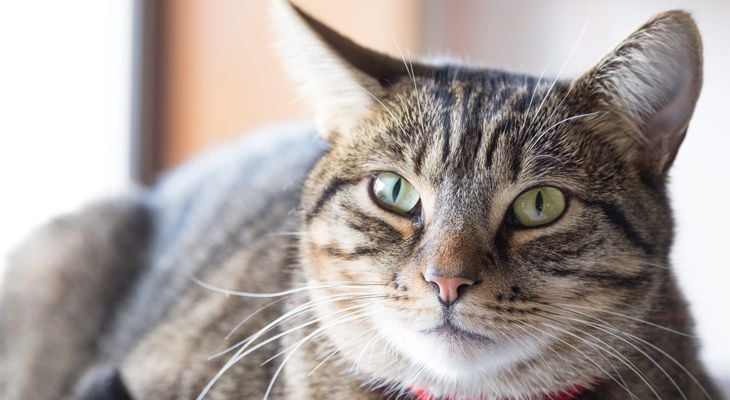
Feline infectious peritonitis (FIP) is a terminal disease that affects cat. Caused by feline infection peritonitis virus (FIPV), it is a mutation of feline enteric coronavirus (FECV) and is more likely to occur in environments where large groups of cats are together, such as animal shelters.
The virus is not fully understood—largely because the virus mutates and has the ability to attack and breed in specified white blood cells, specifically macrophages—but what is known is that cats become infected when they ingest or inhale the virus. The source of transmission is commonly feces, with the next most common sources being clothing and food dishes.
FECV is prevalent, but many cats that are infected with the virus will not develop FIP. Fatal FIP occurs in one in 5,000 cats in households with one or two cats.
Symptoms and Risk Factors
Some cats that are exposed to FECV will have no clinical symptoms, but may have mild diarrhea. Still, just because cats do not exhibit clinical signs, they can still be a carrier of the virus and transmit it to another cat. Also, any cat that is infected with the virus may, at some juncture, develop FIP if the virus mutates. Kittens and very old cats are at greater risk because their immune systems are more likely to be compromised. Viral mutation may also be genetic.
There are two main types of FIP that exist: wet (effusive) and dry (non-effusive). Though both are lethal, the wet form of FIP advances more quickly and is most prevalent, making up 60 to 70 percent of all cases.
The trademark sign of wet FIP is breathing difficulties, which are the result of fluid buildup within the chest or abdomen. Other symptoms associated with wet FIP include:
- Fever
- Weight loss, usually due to lack of appetite
- Diarrhea
- Jaundice
- Depression
- Rough hair coat
- Inflammation
- Sneezing
- Watery eyes
- Nasal discharge
Dry FIP also presents with the symptoms above, except fluid does not accumulate in the abdomen or chest of the cat. There are other distinctive signs, though, and they are ocular or neurological in nature. For instance, a cat with dry FIP may find it difficult to stand or walk or may experience vision impairment.
Diagnosis
FIP is difficult to test for, and no definitive diagnostic test yet exists. This is because while a cat may have the virus, it does not mean it will develop into FIP. However, a veterinarian may make a diagnosis based on the following:
- A physical examination
- Symptoms the cat is displaying
- An examination of the feline’s tissue, which may be in the form of a tissue biopsy. The tissue is viewed under a microscope for the FIP virus.
- Presence of abdominal or chest fluid (with chemistry changes). The fluid may be yellow and have raised protein levels. Called the Rivalta test, it can be used to distinguish fluid associated with FIP or another disease.
- Blood work (looking for viral antibodies and high protein levels)
Treatment
There is no cure for FIP, so treatment is solely palliative and symptomatic. This means that the cat owner is counseled on how to make the cat as comfortable as possible. Immunosuppressive drugs, such as Prednisone can be prescribed, and it may lengthen the cat’s life by a few weeks or months. Antibiotics are also a possible form of treatment.
In addition, methotrexate and cytoxan (cytotoxic drugs) as well as methlyprednisone and prednisolone (corticosteroids) can benefit cats with FIP. They work by improving the feline’s appetite and thus weight gain. They can also make the cat less sluggish.
These therapies and their resulting advantages often do not work for effusive FIP, since it advances too quickly.
Supportive care may involve blood transfusions, fluid therapy and draining fluid that accumulates in the abdomen or chest.
Some veterinarians may also prescribe a nasally administered vaccine, but this treatment method has not proven to be very effective. Outside of this, newer tactics using immune modulators and antiviral drugs are being developed and have had success in trial studies, but are not widely utilized as of yet.
Prognosis
Like immunosuppressive drugs, cytotoxic drugs and corticosteroids can give cats three to five additional months of good quality of life. Despite these improvements and short-lived remission in some cases, prognosis remains very poor—FIP is a fatal disease.
If you are worried that you cat may have FIP, please contact us immediately, so we can help diagnose your cat and provide treatment options that will keep them as comfortable as possible.
